
-
Understanding primary immunodeficiency (PI)

Understanding PI
The more you understand about primary immunodeficiency (PI), the better you can live with the disease or support others in your life with PI. Learn more about PI, including the various diagnoses and treatment options.
-
Living with PI
-
Addressing mental health
-
Explaining your diagnosis
- General care
- Get support
- For parents and guardians
-
Managing workplace issues
- Navigating insurance
-
Traveling safely

Living with PI
Living with primary immunodeficiency (PI) can be challenging, but you’re not alone—many people with PI lead full and active lives. With the right support and resources, you can, too.
-
Addressing mental health
-
Get involved

Get involved
Be a hero for those with PI. Change lives by promoting primary immunodeficiency (PI) awareness and taking action in your community through advocacy, donating, volunteering, or fundraising.
-
Advancing research and clinical care
-
Research Grant Program
-
Consulting immunologist
-
Diagnosing PI
-
Getting prior authorization
-
Clinician education
-
Survey research
-
Participating in clinical trials

Advancing research and clinical care
Whether you’re a clinician, researcher, or an individual with primary immunodeficiency (PI), IDF has resources to help you advance the field. Get details on surveys, grants, and clinical trials.
-
Research Grant Program
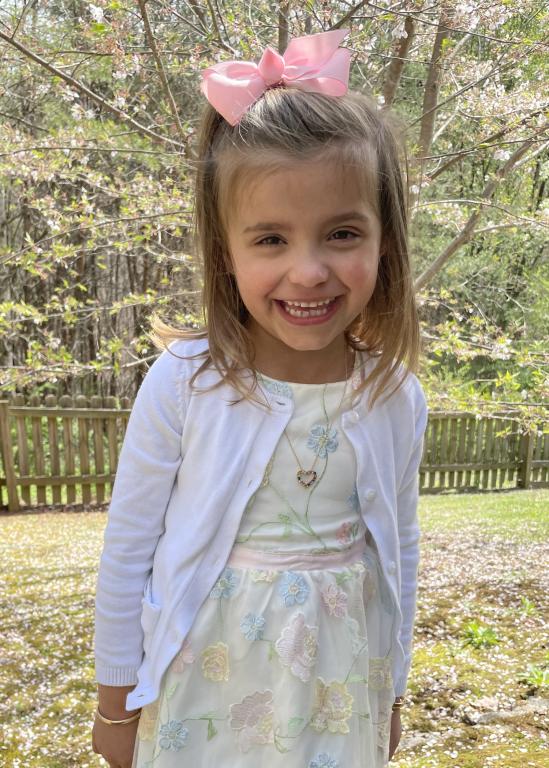
Elliot Ridge smiles as she sits in her mom’s lap and beats on a drum. A music therapist leads mother and daughter in the exercise as part of Elliot’s weekly music therapy class. She sings, dances, listens to melodies—and learns concepts like her colors and numbers. The sessions bridge a gap between her occupational, physical, and speech therapies, said her mom, Jennifer Ridge.
“It’s not restrictive, it’s free, and she leads the sessions, where a lot of times others lead. It allows her to be in charge when she’s not been in charge of so much of her life,” said Ridge.
Elliot, 6, has a rare primary immunodeficiency (PI), activated PI3K delta syndrome (APDS). The condition affects her speech and cognitive abilities, weakens her muscles and coordination, and causes fatigue. It also upsets her digestive tract, makes her more vulnerable to infections, and puts her at risk of lymphoma, a type of blood cancer.
She’s undergone several ear, sinus, and gastrointestinal surgeries to treat her illnesses. Even though she receives subcutaneous immunoglobulin (SCIG) replacement therapy along with a dozen other medicines, Elliot rarely protests.
“She is miraculous when it comes to going through all that she has medically. I don’t know how she does it,” said her mom.
Ridge ensures her daughter receives the therapies and treatments she requires, including those in the school environment. Elliot has an individualized education plan (IEP) and an individualized healthcare plan (IHP). At first, the school administration and staff resisted approving the accommodations and services that provide proper academic and medical support for Elliot. Ridge then met with the school system director to explain Elliot’s condition and advocate for the implementation of the services.
Elliot now receives preferred seating, more support during instructional time, and support in aiding with her hygiene. Her classroom bathroom receives mid-day cleaning and her classroom is disinfected with an electrostatic disinfectant spray. Educators sent home a letter alerting parents that an immunocompromised student is in the classroom.
Ridge also convinced school officials to allow both Elliot and her twin brother Walker to be in the same classroom to reduce exposure to infection.
“The last month of school last year compared to how Elliot is doing in school now, you would think they were completely different students,” said Ridge.
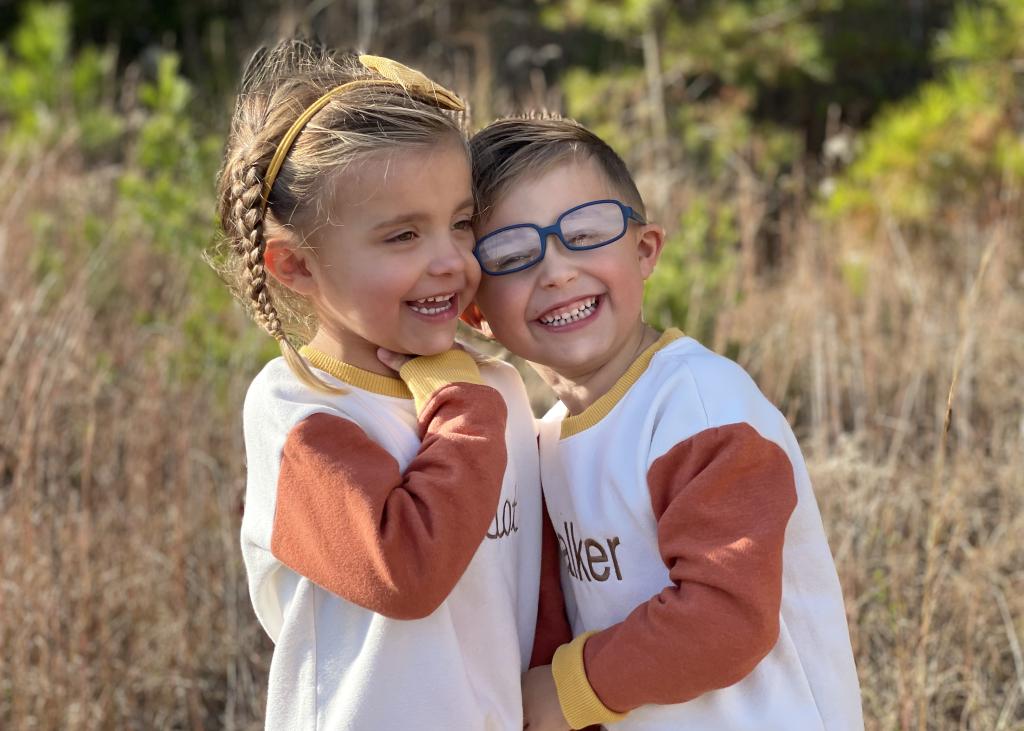
“The hardest part was that I’d been doing all that I could. There was nothing more I could do as a parent to support her. The difficulty came in getting people to meet us at the same level, recognize APDS as a primary diagnosis and its effect on the body and the system, and acknowledge that there was a need. But once they got on board, it seemed to be a little bit easier. Now they are making efforts.”
Although healthy as a newborn, Elliot developed chronic ear and sinus infections within her first year, and as a toddler, she had several sets of ear tubes, took continuous antibiotics, and used inhalers. While being treated for the infections, she contracted the adenovirus which caused severe bloody stool.
Elliot visited her primary care physician group, an ear, nose, and throat doctor, and a gastroenterologist, along with therapists for delays in walking, fine motor skills, and speech. Ridge suspected providers hadn’t identified the source of her daughter’s poor health.
“For four or five months we were in and out of doctors' offices. I thought, ‘This is not right,’ and I couldn’t get anyone to listen and see what I was saying because it would always be just far enough to where the infections were not close enough together. And we hadn’t been hospitalized. So, I did some research and found an allergist/immunologist,” said Ridge.
The immunologist gave Elliot the pneumococcal vaccine and she failed to produce appropriate antibodies to the vaccine. He also ran genetic testing. Results showed Elliot, then 5, had APDS.
“The immunologist said, ‘You need to give me some time to look into this and see what we need to do and how we need to treat Elliot.’ And then he came back and said, ‘Well, there’s not much out there.’ And then he asked me what led us to him. And I told him our story and he said, ‘OK, we're going to navigate this together and we’re going to figure this out,’ and so he's been wonderful. He’s just very open and he listened,” said Ridge.
Elliot started weekly SCIG in June 2022. Her father Jeremy administers the infusions, and Elliot wears her princess dress for each infusion. She takes Benadryl and Tylenol before her SCIG to mitigate side effects and continues to take prophylaxis antibiotics, inhalers, and nasal sprays for her symptoms, along with other medications.
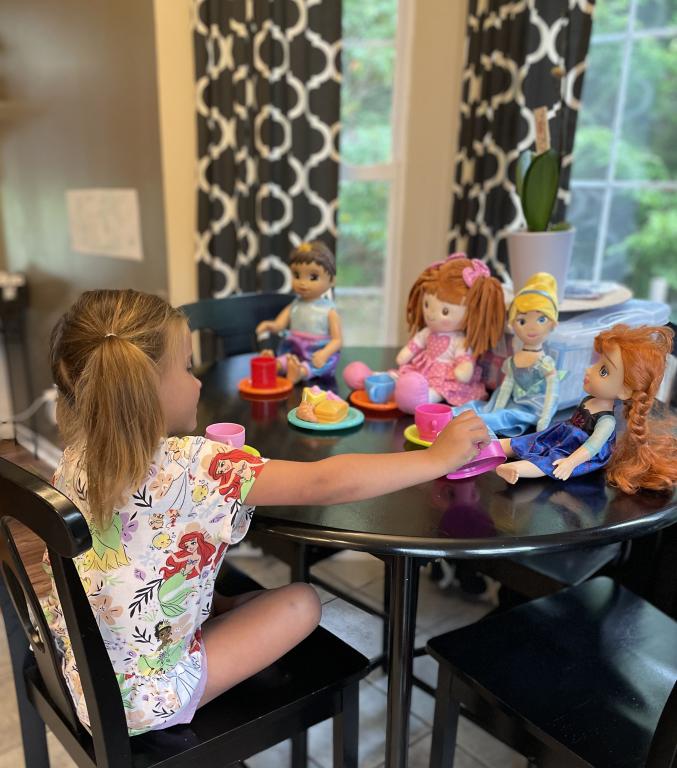
The Ridges plan to enroll Elliot in a clinical trial for leniolisib (trademarked as Joenja by Pharming), a treatment already approved for persons with APDS ages 12 and up. The clinical trial is for pediatric patients ages 1 to 6 with APDS.
“The medical world has come so far in such a short time and things are getting better almost daily. What used to take decades, doesn’t take decades any longer, and that is encouraging," said Ridge.
Ridge said navigating relationships with family and friends can be tough. She wants people to see Elliot for who she is—an easygoing, social child who loves to play with dolls, read books, spend time with her brother, and accompany her mom to the grocery store. At the same time, she needs people to understand that Elliot requires protection from infection and that includes making sure she avoids contact with people who are not vaccinated.
“It can be very isolating because people can’t see inside your home. People can’t see inside your body. They don’t see what’s going on inside, they only see the surface. We don’t necessarily talk about it as a family because sometimes talking about it brings a lot of questions and a lot of things you don’t have the answer for. But also, once you let it be known, they continually ask about it,” said Ridge.
“When we’re out, I just want, ‘How are your kids doing? Oh, they’ve gotten so big,’ and have that be it. We don’t want APDS to be at the forefront of who Elliot is. She’s not Elliot with APDS. I want people to see her as Elliot, and support her for who she is, not what she has.”
The Immune Deficiency Foundation (IDF) is an important resource for the Ridge family. Ridge used the IDF School Guide for strategies on how to advocate for her daughter and she attended the IDF 2024 PI Conference in June. The conference provided deeper insight into life with PI, said Ridge, and helped her understand that her family is now a part of a strong, vibrant community.
“The zebra effect really hit home. Elliot really is unique, and she has great zeal. It was finding and knowing and recognizing that there is a herd that she is a part of and knowing that the support is there,” said Ridge. “Having that footprint fall into place as to how the journey will look for her was eye-opening and so now, I’m at a point where I can sit down and create the blueprints for her life.”
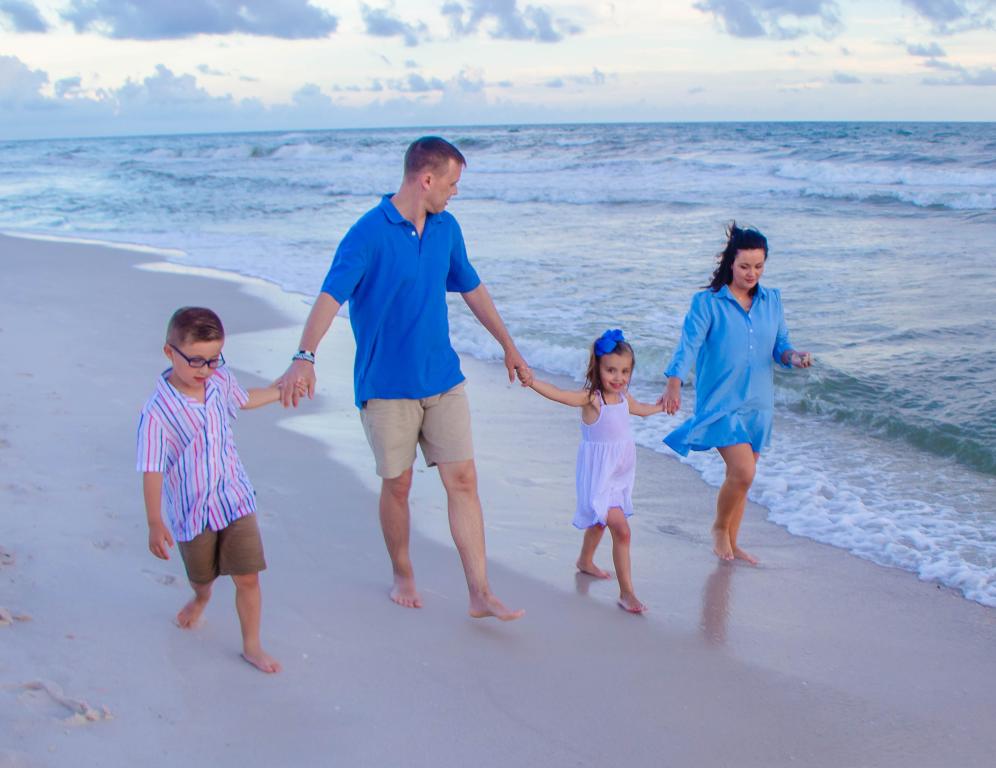
Ridge intends to request a proclamation for APDS in her home state of Tennessee next year to create greater awareness of the condition. She also hopes to bring Elliot with her to the next PI conference.
“I think what keeps me OK is knowing that it’s all here for a reason and I have the ability to be seen and be heard that not everybody has within their make. And I feel like that is a way that I can contribute,” said Ridge.
“It’s stressful and draining but it’s also what gives me a drive to do it and be there. I’m not only doing this for her but also for those that follow her so that another mother doesn’t have to.”
Watch 2024 PI Conference sessions
Missed a session or want a refresher? 2024 PI Conference session recordings are now available!
Browse sessionsRelated resources
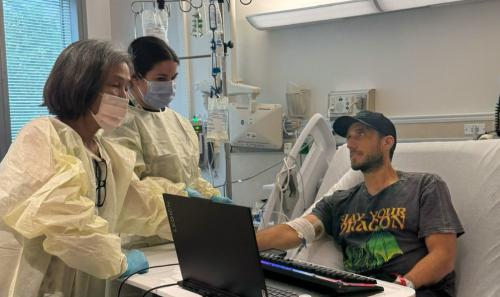
Man with X-linked hyper IgM first-ever to receive novel gene therapy
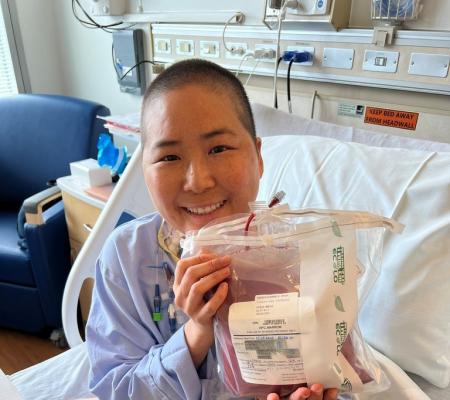
Pharmacist with CVID receives bone marrow transplant

Undiagnosed: Reuben & Sherri Johnson on CGD, chronic illness, and the fight for healthcare
Sign up for updates from IDF
Receive news and helpful resources to your cell phone or inbox. You can change or cancel your subscription at any time.





The Immune Deficiency Foundation improves the diagnosis, treatment, and quality of life for every person affected by primary immunodeficiency.
We foster a community that is connected, engaged, and empowered through advocacy, education, and research.
Combined Charity Campaign | CFC# 66309

